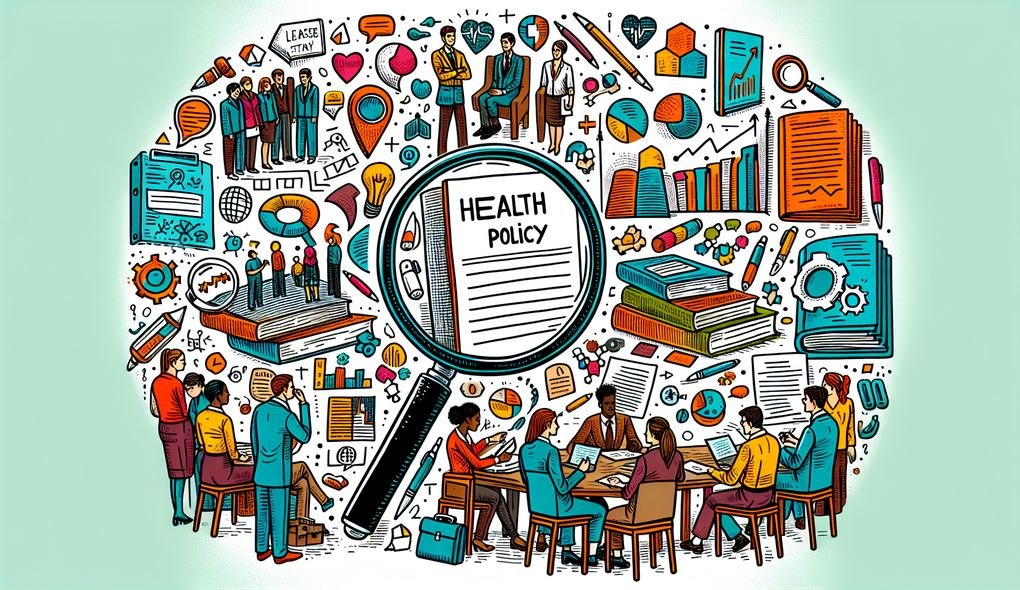Can you discuss your decision-making process when it comes to health policy?
SENIOR LEVEL

Sample answer to the question:
When it comes to health policy, my decision-making process begins with thorough research and analysis. I gather quantitative and qualitative data to understand the current landscape and identify key issues. Next, I engage with stakeholders, such as healthcare professionals and government officers, to gain diverse perspectives. I also take into consideration the economic implications and legislative processes involved. Once I have all the necessary information, I use my problem-solving skills to evaluate different policy options and their potential impact on healthcare systems and populations. I weigh the benefits and drawbacks of each option and consider the feasibility of implementation. Finally, I make a well-informed decision and communicate my recommendations through clear and concise reports and presentations.
Here is a more solid answer:
When it comes to health policy, my decision-making process is thorough and informed. I start by conducting comprehensive research using both quantitative and qualitative methods. This includes analyzing existing policies, studying health economics, and understanding the impact on healthcare systems and populations. Using this knowledge, I identify key issues and engage with stakeholders, such as healthcare professionals, government officers, and community organizations. By actively involving all relevant parties, I ensure that diverse perspectives are considered in the decision-making process. Next, I evaluate different policy options based on their feasibility and potential impact. I use my problem-solving skills to weigh the benefits and drawbacks of each option, taking into account the economic implications and legislative processes involved. Finally, I make a well-informed decision and communicate my recommendations through clear and concise reports and presentations, tailored to the specific audience. This approach has proven successful in influencing health policies and achieving positive outcomes.
Why is this a more solid answer?
This is a solid answer because it expands upon the basic answer by providing more specific details and examples. It highlights the use of quantitative and qualitative research methods, stakeholder engagement, problem-solving skills, and the ability to communicate recommendations effectively. However, it could further improve by including specific examples or achievements related to health policy decision-making.
An example of a exceptional answer:
As a health policy analyst, my decision-making process for health policy is comprehensive and strategic. I begin by conducting a thorough analysis of existing and proposed policies, health economics, and healthcare systems. This involves using quantitative and qualitative research methods to gather relevant data and identify key issues. I also employ advanced data analysis techniques to assess the potential impact of different policy options. In addition to research, I engage with a wide range of stakeholders, including healthcare professionals, government officers, non-profit organizations, and private sector entities. By actively involving all relevant parties throughout the decision-making process, I ensure that diverse perspectives are considered and incorporated into the final recommendations. Furthermore, I apply my problem-solving skills to evaluate the feasibility of different policy options, considering the economic implications and legislative processes involved. I prioritize evidence-based strategies that have a high likelihood of achieving positive health outcomes for populations. Finally, I communicate my recommendations through comprehensive reports, briefs, and presentations tailored to the specific audience. This combination of research, stakeholder engagement, problem-solving, and effective communication has led to successful policy reforms and improved health outcomes in my previous roles.
Why is this an exceptional answer?
This is an exceptional answer because it goes into great detail about the decision-making process for health policy. It showcases the candidate's advanced research and data analysis skills, extensive stakeholder engagement, strategic problem-solving approach, and effective communication abilities. The answer also highlights the candidate's track record of successful policy reforms and improved health outcomes. It demonstrates a comprehensive understanding of the role and responsibilities of a health policy analyst. However, it could be further improved by providing specific examples or achievements related to health policy decision-making.
How to prepare for this question:
- Brush up on health policy analysis techniques and methodologies, including quantitative and qualitative research methods.
- Familiarize yourself with the legislative processes and healthcare systems in the jurisdictions you are targeting.
- Develop strong communication and presentation skills to effectively convey policy analysis findings and recommendations to different audiences.
- Seek opportunities to engage with healthcare professionals, government officers, and other stakeholders in the field of health policy.
- Stay updated on current health policy issues and developments through relevant publications, conferences, and forums.
What are interviewers evaluating with this question?
- Health policy analysis
- Quantitative and qualitative research methods
- Stakeholder engagement
- Problem-solving
- Decision-making

